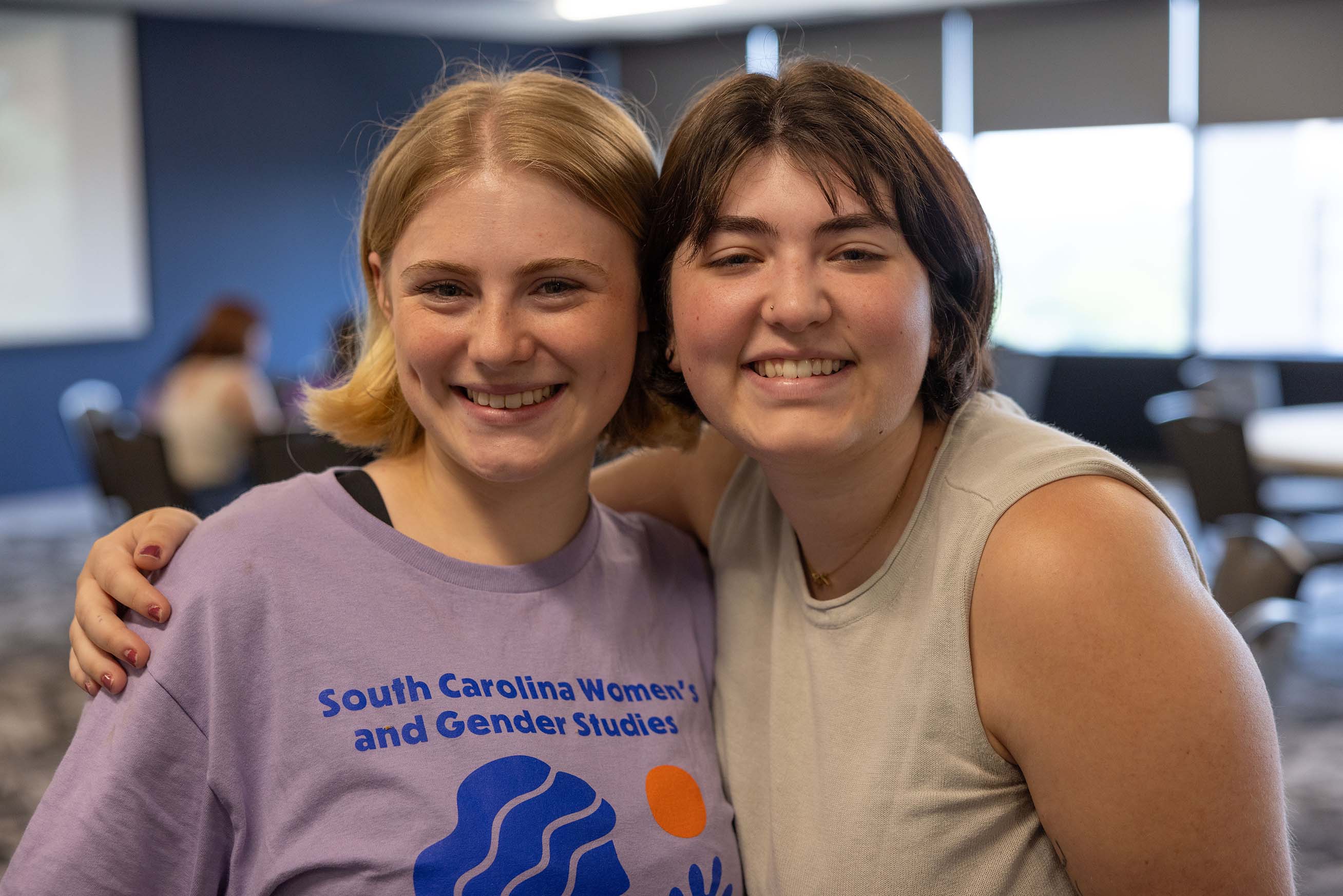The University of South Carolina's Department of Women's and Gender Studies has been awarded a $100,000 grant by the Andrew W. Mellon Foundation through its "Affirming Multivocal Humanities" initiative, which, according to its website, strives to “further address the continuing need for nuanced scholarship on the breadth of the human experience through race, ethnic, gender and sexuality studies."
One of 66 recipients of the total $18 million grant, USC's Department of Women's and Gender Studies was chosen because of its proposed plans of student participation in "community-engaged multivocal humanities learning and research," says Kathryn Luchok, a senior instructor in the Department of Women's and Gender Studies.
This is a boon to the university because frontrunning such research paves the way for more awareness on issues and attention to the department's accomplishments.
"Community-engaged research supports communities and our state as the flagship university of our state," Luchok says. "This brings us more attention nationally and internationally."
So, what will the funds be used for?
Simply, "the grant is used to develop and implement a multi-pronged undergraduate research component on issues germane to women and gender that will promote community awareness and engagement among our students," says Luchok.
This includes an in-development course on foundational feminist research methods expected begin in spring 2025. Although it will be a required course for Women's and Gender Studies students, it will be open to all interested undergraduates. It was designed so that after students finish the course, they will be prepared with the knowledge and skills they need to work together with their community on issues involving women and gender.
The impact of the gift doesn't stop at the here and now. USC's department is working with Benedict College to plan a conference this October focusing on research from the Black Feminist Conversation series. The department plans to publish some student research projects from the conference.
An emphasis on scholarship and collaborative, community-based research is at the core of the department. Partnering with others involved in Women's and Gender Studies programs paves the way for more diverse perspectives and ways to learn from each other to tackle issues in a nuanced way. This leads to updated curricula and ways for students to engage in ideas they might have never thought of if not for interacting with others.
"This focus on full community engagement continues a long tradition of fostering empowerment in our teaching, research and programming," says Luchok.
The idea of unity through intersectionality is championed by the Mellon Foundation. It was actually the crux of the grant itself — the Foundation advocates for "the power of many voices and many discourses" and the "inclusion of untold experiences" as areas to study in order to ensure that every voice is heard.
Many voices were heard this past May as USC hosted the inaugural South Carolina Women's and Gender Studies Institute. Students in similar programs across the state, including College of Charleston, Furman University and more, gathered in Columbia to collaborate and share experiences. They attended informative sessions on interpersonal violence and community response, women's self-defense, diet culture and more.
Emma Galluccio, a junior studying Women's and Gender Studies at USC, enjoyed the institute because it gave her an opportunity to bond with and learn from the other attendees.
"The institute was about sharing passions and connecting with different sexes, races and ethnicities," she said. "It was about earning validation and creating a welcoming environment in the Women's and Gender Studies Department."
The final day of the institute was dedicated to The Festival of Us, in which students presented projects summarizing what they had learned that week. Among them were poems, paintings and even matching tattoos, symbolizing the bond they had chosen to carry with them into the future.
The reach of the Mellon Foundation's funds goes far beyond the topic of Women's and Gender Studies. The knowledge is interdisciplinary and can be crossed over into many career paths, such as law, education, and non-profits, says Director of Undergraduate Studies Dawn Campbell. The most important lessons students learned was how to use their voices to advocate for themselves and others.
"The funds allowed us to make connections, build communities and open lines of communication that allow us to do more things like this," she said.
